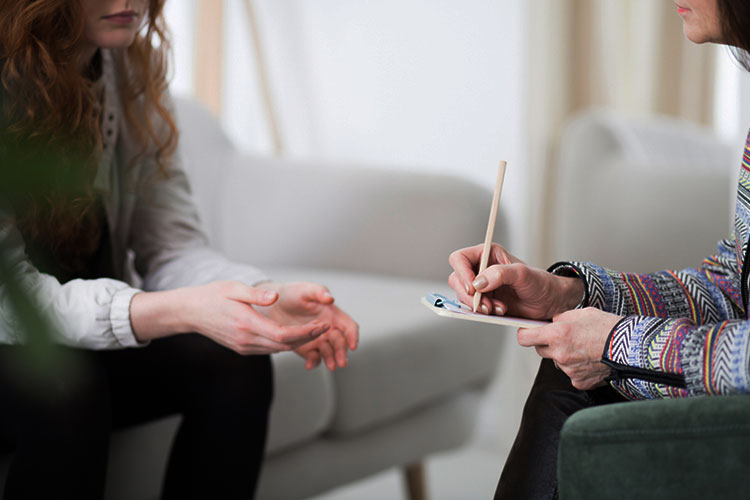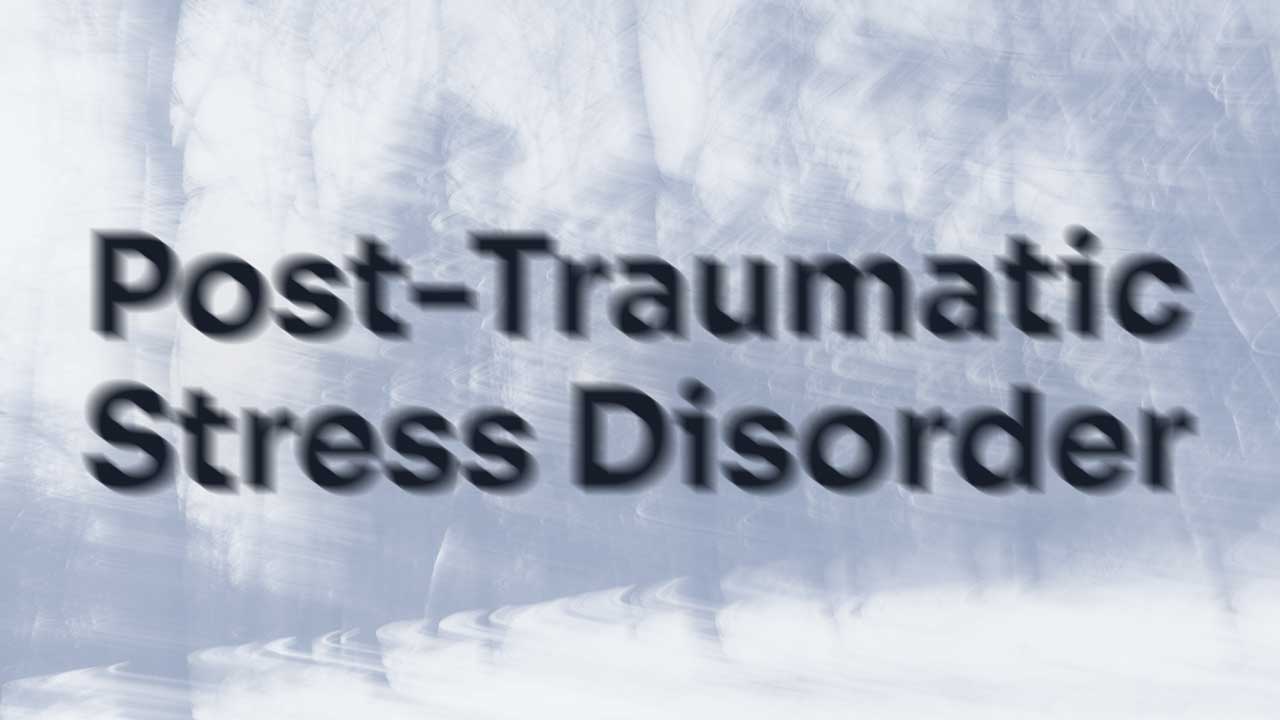Did you know that over 10% of Australians will experience post-traumatic stress disorder in their lifetime (SANE 2023)?
What is Post-traumatic Stress Disorder?
Post-traumatic stress disorder (PTSD) is the term given to a specific set of reactions and health complications that follow the experience of an event that threatened a person’s life or safety, or the safety of those around them (Better Health Channel 2022).
The term PTSD is often used to describe post-war mental health complications, but you don’t need to have experienced combat to have PTSD. PTSD can relate to a range of traumatic events, which in many cases have severe effects on the person.
Note that PTSD is distinct from post-traumatic stress (PTS). PTS is a normal and adaptive response to trauma - not a mental illness. The side effects of PTS should resolve over the space of a month (Bender 2018).
Causes of Post-traumatic Stress Disorder
Situations that may trigger PTSD include:
- Physical or sexual assault
- A car accident or other road accident
- A traumatic birth experience
- War and torture
- Experiencing an act of terror
- Natural disasters
- A friend or family member experiencing a traumatic event.
(Phoenix Australia 2023; Better Health Channel 2022; Taylor-Desir 2022; Your Health In Mind 2021)

Post-traumatic Stress Disorder Facts
- About 5.6% of people who experience trauma will develop PTSD
- PTSD is more common in women than in men
- War veterans and emergency service workers generally have high rates of PTSD
(WHO 2024; Your Health in Mind 2021)
Risk Factors that Increase the Chance of Developing Post-traumatic Stress Disorder
- Being injured
- Childhood trauma
- Feeling horror, helplessness or extreme fear due to the event
- Having little or no support after the traumatic event
- Genetic factors and/or having a history of mental illness or substance abuse
- Experiencing additional stresses after the event (e.g. loss of a loved one, injury)
- Seeing another person get injured or killed.
(NIMH 2024)
Post-traumatic Stress Disorder and Comorbid Conditions
It’s well documented that people with post-traumatic stress disorder often present with additional psychological disorders. In fact, about 80% of people with PTSD develop additional conditions such as depression, anxiety or substance abuse (Better Health Channel 2022).
A study into the prevalence of PTSD in Aboriginal and Torres Strait Islander people in custody in Australia found that PTSD often corresponded with anxiety (31.2%), depression (32.8%), psychosis (24.6%) and suicidal ideation (50.1%) (Heffernan et al. 2015).

Symptoms of Post-traumatic Stress Disorder
- Repeated thoughts related to the event that are intrusive, intense, disturbing or all of these
- Vivid flashbacks of the event
- Panic attacks
- Feeling physically and psychologically distressed
- Negative thoughts and feelings about one’s self including guilt, depression, anxiety, fear or shame
- Avoidant behaviours, such as avoiding places, people or objects related to the event
- Sleeping and concentration difficulties
- Being easily angered, irritated, wound-up or alert
- Feeling emotionally numb, or experiencing dissociation or general feelings of detachment
- Being constantly on guard for danger.
(Taylor-Desir 2022; Better Health Channel 2022; Mayo Clinic 2024; Gökbayrak & Orentas 2021)
PTSD can impact all facets of life including work, relationships, health and overall quality of life (Your Health in Mind 2021).
Post-traumatic Stress Disorder Symptoms in Children
Children and teenagers can have extreme responses to trauma, but the symptoms they display are often different to those expressed by adults (NIMH 2019).
Be alert to symptoms such as:
- Bedwetting
- Reluctance or sudden inability to talk
- Acting out the event during play
- Being more clingy than usual.
(NIMH 2024)
Treatment for Post-traumatic Stress Disorder

Treatment may include:
- Psychological therapies (‘talk therapies’)
- Trauma-focused cognitive behaviour therapy (CBT)
- Cognitive therapy
- Eye-movement desensitisation and reprocessing (EMDR)
- Exposure therapy
- Medication, such as antidepressants
- A combination of these
(SANE 2023; NIMH 2024)
For children, trauma-focused cognitive behaviour therapy is the recommended treatment (Better Health Channel 2022).
Post-traumatic Stress Disorder Relapse
Revisiting places or reuniting with certain people can reignite PTSD in some people. It is recommended that patients make a recovery plan with their therapist (Your Health in Mind 2021).
Support from loved ones or groups may also be helpful (Mayo Clinic 2024).
Test Your Knowledge
Question 1 of 3
Which one of the following statements is true about post-traumatic stress disorder?
Topics
References
- Bender, J 2018, ‘What Are the Differences Between PTS and PTSD’, BrainLine, 25 July, viewed 10 September 2024, https://www.brainline.org/article/what-are-differences-between-pts-and-ptsd
- Better Health Channel 2022, Post-Traumatic Stress Disorder (PTSD), Victoria State Government, viewed 10 September 2024, https://www.betterhealth.vic.gov.au/health/conditionsandtreatments/post-traumatic-stress-disorder-ptsd
- Beyond Blue 2013, PTSD, Beyond Blue, viewed 19 September 2022, https://www.beyondblue.org.au/the-facts/anxiety/types-of-anxiety/ptsd
- Gökbayrak, NS & Orentas, G 2021, ‘Signs and Symptoms of PTSD in Women’, PsychCentral, 2 August, viewed 10 September 2024, https://psychcentral.com/ptsd/signs-and-symptoms-of-ptsd-in-women
- Heffernan, E, Andersen, K, Davidson, F and Kinner, S A 2015, 'PTSD Among Aboriginal and Torres Strait Islander People in Custody in Australia: Prevalence and Correlates', Journal of Traumatic Stress, vol. 28, no. 6, pp. 523-530, viewed 10 September 2024, https://pubmed.ncbi.nlm.nih.gov/26584243/
- Mayo Clinic 2024, Post-Traumatic Stress Disorder (PTSD), Mayo Clinic, viewed 10 September 2024, https://www.mayoclinic.org/diseases-conditions/post-traumatic-stress-disorder/symptoms-causes/syc-20355967
- National Institute of Mental Health 2024, Post-Traumatic Stress Disorder, U.S. Department of Health & Human Services, viewed 10 September 2024, https://www.nimh.nih.gov/health/topics/post-traumatic-stress-disorder-ptsd
- Phoenix Australia 2023, Your Recovery, Phoenix Australia, viewed 10 September 2024, https://www.phoenixaustralia.org/your-recovery/
- SANE 2023, Post-Traumatic Stress Disorder (PTSD), SANE, viewed 10 September 2024, https://www.sane.org/information-and-resources/facts-and-guides/post-traumatic-stress-disorder
- Taylor-Desir, M 2022, What is Posttraumatic Stress Disorder (PTSD)?, American Psychiatric Association, viewed 10 September 2024, https://www.psychiatry.org/patients-families/ptsd/what-is-ptsd
- World Health Organisation 2024, Post-traumatic Stress Disorder, WHO, viewed 10 September 2024, https://www.who.int/news-room/fact-sheets/detail/post-traumatic-stress-disorder
- Your Health In Mind 2021, Post-Traumatic Stress Disorder, The Royal Australian and New Zealand College of Psychiatrists, viewed 19 September 2022, https://www.yourhealthinmind.org/mental-illnesses-disorders/ptsd
 New
New 
